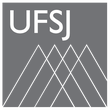Banca de QUALIFICAÇÃO: SAULO ANTONIO SILVEIRA PEREIRA
Uma banca de QUALIFICAÇÃO de MESTRADO foi cadastrada pelo programa.STUDENT : SAULO ANTONIO SILVEIRA PEREIRA
DATE: 21/08/2023
TIME: 14:00
LOCAL: Google Meet. Sala:meet.google.com/jpr-fsjq-wmo
TITLE:
GLOBALIZATION AND AGRICULTURE: THE FAMILY FARMERS IN OLIVEIRA-MG
KEY WORDS:
Keywords: Globalization, Family Farming, Place, Globalized Agriculture, exclusion.
PAGES: 60
BIG AREA: Ciências Humanas
AREA: Geografia
SUBÁREA: Geografia Humana
SPECIALTY: Geografia Econômica
SUMMARY:
The process of globalization has brought about new nuances for Space in its various scales. The present work aims to interpret the Place, a space produced by Family Farming in the municipality of Oliveira-MG in the face of globalization. Bearing in mind the historically unequal formation of the Brazilian countryside, added to the contradictions of the globalization process itself, the aim here is to understand globalized agriculture from the point of view of socio-spatially excluded actors, in this case, family farming. Under the issue of social and territorial exclusion, the central objective is to understand whether the place(s) in which this group occupies are complacent or resistant to its peripheral position in the face of globalized agriculture. The research, therefore, revolves around tracing a profile of the general characteristics of the group studied from data collection, interviews with family producers and field work, supported by the studied bibliography, mainly based on the theoretical perspective called New Geography by Milton Santos. This report is divided into three chapters: Chapter I from a more theoretical perspective, presenting the theme of globalization, focusing on the conflict between Global and Local, the perspective of Place used here from an existentialist perspective, in addition to a brief history of the formation of the Brazilian countryside and family farming. Chapter II is aimed at understanding the study area, the municipality of Oliveira-MG, more specifically its rural space, in addition to presenting data and characteristics of municipal family farming. In chapter III, some discussions take shape about the space occupied by the studied group, based on the data collected, about their social and productive profile, in addition to their relationship with public policies and with the technical-scientific-information environment. Finally, until then, it can be concluded that family farmers in Oliveira are a very diverse and dispersed group, but with characteristics that generally show their exclusion more than their reaction to the peripheral position in which they may occupy. It still remains to understand other nuances that may contribute to elucidate the question: whether they build a place of subalternity and/or subversity in the face of a globalized rural space.
Keywords: Globalization, Family Farming, Place, Globalized Agriculture, exclusion.
BANKING MEMBERS:
Presidente - 1896246 - MARCIO ROBERTO TOLEDO
Interno - 1870878 - IVAIR GOMES
Externa ao Programa - 3325515 - PATRICIA MARTINELLI
Externo à Instituição - MIRLEI FACHINI VICENTE PEREIRA - UFU



